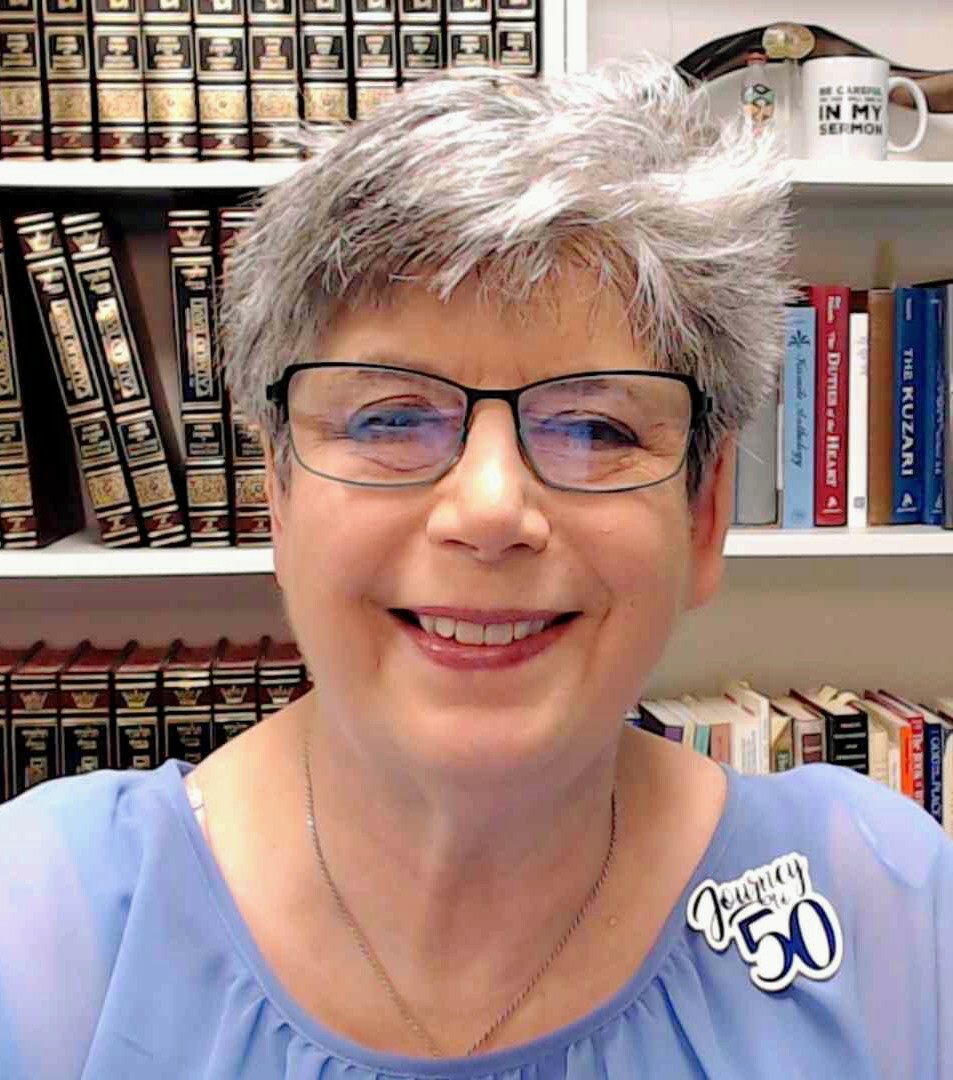May the door of this synagogue be wide enough to receive all who hunger for love, all who are lonely for fellowship.
May it welcome all who have cares to unburden, thanks to express, hopes to nurture.
I began our worship tonight with these beautiful words of welcome. Here at Temple Beth Israel, we open our doors to those who wish to join us to pray, to study, to celebrate – to be part of something special and greater than themselves. Our numbers are growing – people of all ages and backgrounds. To all of you, I say: Welcome home!
This Shabbat marks a “welcome home” for all the Jewish people everywhere. We call it “Shabbat HaGadol,” or the Great Sabbath – the Shabbat that falls right before Passover. Passover marks the exodus of our people from bondage in Israel, as Moses led us out into the wilderness and to the foot of Mount Sinai to enter into our eternal covenant with God. Passover is just the beginning of this journey that eventually brought us into the Promised Land. But it marks God’s four-fold promise to us, as we recite each year in the Passover Seder:
I am יהוה. I will free you from the labors of the Egyptians and deliver you from their bondage. I will redeem you with an outstretched arm and through extraordinary chastisements. And I will take you to be My people, and I will be your God. And you shall know that I, יהוה, am your God who freed you from the labors of the Egyptians.[1]
Freedom. Deliverance. Redemption. These are much on the minds of Israelis on this Shabbat HaGadol. Especially redemption. With 133 hostages still being held in Gaza – a number of them believed to be dead already – redemption of the hostages, one of the most important mitzvot any Jew can perform, is essential for deliverance and freedom for all Jews everywhere.
Our hostages have been, horrifically, used as bargaining chips by Hamas, which bears responsibility not only for their care but also for the well-being of all Palestinians living in Gaza. Clearly, had the international community condemned the atrocities of October 7th on October 8th and demanded that Hamas return the hostages immediately, lay down their weapons and depart Gaza, we would not be in the position we are in today.
But here we are. A terrible loss of life in Gaza. And an estimated 250,000 Israelis, from both the north, where Hezbollah continues its attacks from Lebanon, and the south, the site of mass slaughter, living life as evacuees in Jerusalem and elsewhere in the interior of Israel. Because it is far too dangerous to return home.
We are doing what we can. Remembering those who have died and those who are, hopefully, still alive. Making donations to organizations that are helping care for the sick and the injured and the homeless.
But mah nishtanah ha lielah ha’zeh, how different this night is from all other nights. How different this Passover is from any Passover in our memories!
While we prepare for the traditional “four questions,” Rabbi Yael Levy’s web page, “A Way In,” shares with us four new questions to think about this year:
- How do we go out from the narrow perspectives and constricted thoughts that so deeply divide us?
- How do we soften our tender, vulnerable hearts in a world of such violence, pain and fear?
- How do we cross over into a new way of being in which all people, all life, earth herself, are treated with dignity and sacred care?
- What will guide us through this wilderness?[2]
For me, what guides me through the wilderness is what waits for us on the other side.
Earlier, I spoke about the four ways God talks about redemption, which we read in our Haggadah from Exodus, chapter 6. But there’s actually one more, a fifth one, in the very next verse[3]:
“I will bring you into the land which I swore to give to Abraham, Isaac, and Jacob, and I will give it to you for a possession, I יהוה. ”
Oddly, we don’t mention this last one at Passover. I think that’s weird. After all, we will end out seder by proclaiming: “Next year in Jerusalem!” Maybe it didn’t fit into the mold of creating everything in the Seder in fours. Maybe it was dangerous to speak in times gone by of redeeming the Jews from the four corners of the earth[4].
But we should speak it. Because this is the ultimate promise: A return to our promised land. The place where, as God promises us in this week’s special reading from the prophet Malachi:
“Then the offerings of Judah and Jerusalem shall be pleasing to GOD as in the days of yore and in the years of old . . . Lo, I will send the prophet Elijah to you before the coming of the awesome, fearful day of GOD. He shall turn the hearts of parents back to their children and children to their parents.”[5]
As the rabbis teach, this means that Elijah will come to make peace in the world.[6]
That, truly, would be a “welcome home” – for all Israelis and for all Israel.
May this synagogue be, for all who enter, the doorway to a richer and more meaningful life.
And let us say together: Amen.
#####
©2024 Audrey R. Korotkin
[1] Exodus 6:6-7
[2] https://www.awayin.org/teachings-archive/2024/four-questions-as-we-enter-this-new-season
[3] Exodus 6:8
[4] Isaiah 11:12
[5] Malachi 3:4, 23-24.
[6] Rashi, Eduyot 8;7.

